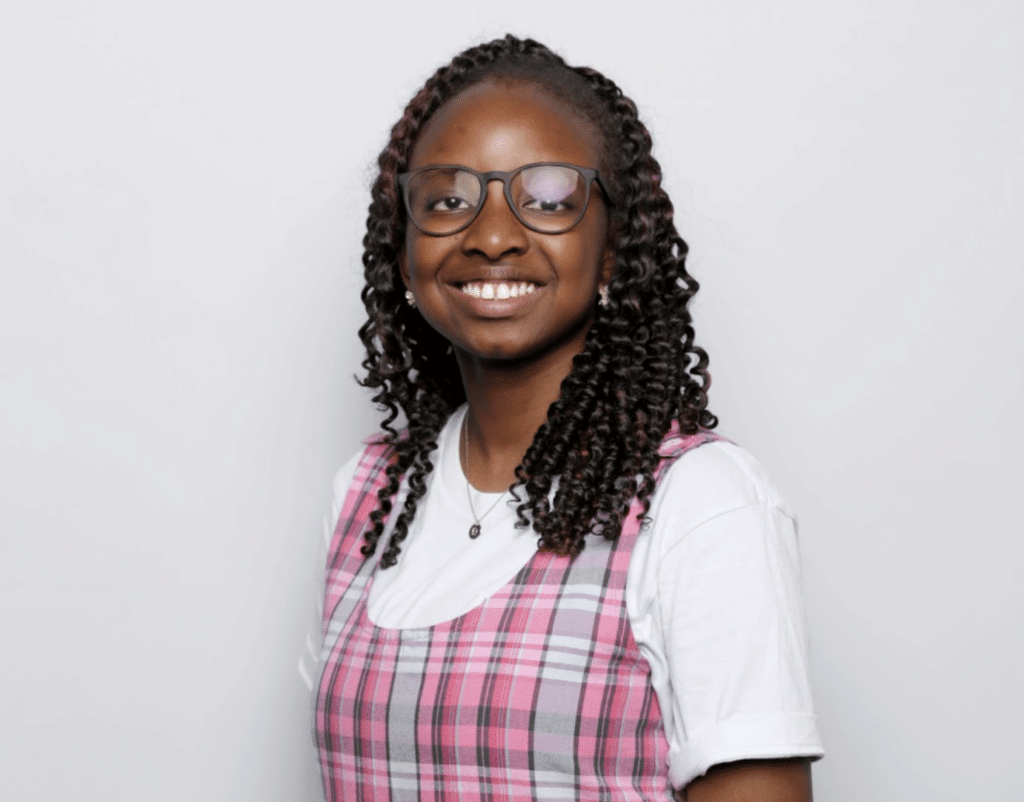Meet
Deborah Mepaiyeda, one of our amazing Fellows from AHF’s 2021 Fellowship Circle, panel speaker on AHF’s 2021 Virtual Summit, and a member of AHF’s
Virtual Career Accelerator program advisory group.
Graduating from Toronto Metropolitan University with a Bachelor of Science in Computer Science in 2020, Deborah is currently a Full-Stack Developer at Accenture. In 2020, she co-founded
International Hub (IH), an online community and opportunity database with the goal of helping over 900 international students and young professionals achieve their dream careers in Canada through mentorship and coaching. IH was selected as
1 of 36 startups nationwide for Labs Batch 7, an accelerator program for youth-led startups by League of Innovators.
Deborah is on a mission to make the world a better place through technology as a mentor and advocate for diversity of women in STEM fields. She also enjoys fostering a supportive community wherever she goes and does so through BOLD, Accenture Canada’s Black Employee Resource Group (ERG).
Deborah was also a recipient of the
Rewriting the Code Fellowship Program in which she achieved 1st place amongst 20 teams for building a fully functional web application in 8 weeks. Beyond work, she has a
food Instagram page where she uses her skills in food photography to share her love for food while supporting small businesses.
We had a chance to sit down with Deborah to explore her career journey and more.
Navigating White-Dominated Spaces in Tech
Despite the increased focus on diversity, equity and inclusion in the high-tech industry, there is still much progress to be made. According to research, in the US tech sector,
62 percent of tech jobs and 83.3 percent of tech executive roles are held by white Americans. There is no question that these stats need to change.
While systemic and institutional culture changes are imperative to attract, retain and advance Black, Indigenous and women of colour in the tech industry, Deborah believes that we must also encourage young women to pursue this pathway despite the barriers.
Deborah advises young high-tech and computer science hopefuls, “don’t see yourself as less than anyone. Post-secondary programs can be a tough place at times but I encourage you to find your people. If possible, find a mentor – someone who will help you progress in your career.”
A lack of representation in tech programs and fields can feed into the misconception that women of colour don’t belong or deserve their spot in these spaces. What is more, imposter thoughts as a result of systemic racism and bias are shown to disproportionately impact Black, Indigenous, and racialised women.
Deborah advises young women to “do things outside of your comfort zone and speak up because your ideas matter. The only way to get comfortable is by taking action.”
We often hear that women can opt out of applying for jobs or opportunities when they are fully deserving and qualified. Deborah advocates “Don’t get intimidated by any job description. It’s simply a wish-list of what employers want to see in a candidate. If you meet at least half or even less than half of what it says in the job posting, it’s worth applying. Don’t sell yourself short.”
Finding a safe space and community within your postsecondary institution or company that allows for marginalised employees to connect is essential to thriving in these spaces. This includes Employee Resource Groups (ERGs) which Deborah explains can “help companies take action when it comes to Equity, Diversity and Inclusion (EDI) and help educate employees about the importance of EDI in the company through various initiatives.”
Deborah got involved with BOLD, Accenture’s ERG for Black employees to provide support for folks through community events and recruitment initiatives, and address barriers in the way of Black success while celebrating wins and filling the talent pipeline.
“Currently, I’m involved in planning for a BOLD conference to help Black individuals/students learn more about Accenture, develop relevant skills, and gain connections to people in the company,” explains Deborah.
“Growing up, I wasn’t surrounded by that many people that looked like me,” reflects Deborah. “Being a part of BOLD allows me to learn from other Black folks in the company, bring more of Black folks into the company as well as connect with people who look like me.”
The Power of A Meaningful Mentorship Relationship
At AHF, we believe in celebrating and amplifying those who have paid it forward in our lives and careers and asked Deborah about mentors who have had an impact in her career journey. Deborah recalls a mentor, Nancy, who has made a significant impact in her life during her time at a co-op work term.
As a Software Developer and assigned buddy for Deborah, “Nancy walked with me in my journey at the company, helped me develop my confidence as a developer and gave me career advice. I learned a lot from her.”
After the work term ended, Deborah asked to continue as her mentee. “Since then, she’s been mentoring me for 3+ years,” explained Deborah. “Nancy has been there for me through easy and hard times in my career,” Deborah reflects. “She has helped me grow, helped me overcome difficult situations in my career, taught me to speak up for myself concerning things like negotiating promotions, and encouraged me.”
In order to get the most out of your mentorship, it is important to be proactive in both creating and maintaining mentorship connections. Fulfilling relationships come from being assertive in asking for and offering help. Work together with your mentor to create a set of aims for what you want out of the relationship and make plans to work towards achieving those goals.
There are different types of mentors we can benefit from on our career and life journeys, such as mentors who provide advice, coaching, safe space for open conversations, making connections, sponsorship, etc. Deborah provides tips for women wanting to harness the benefits of mentoring and those wanting to mentor Black, Indigenous and women of colour to get the most out of the relationship.
Deborah’s Tips for Mentees
- Come ready with questions for your mentor
- Schedule a dedicated time in your calendars
- Learn more about your mentor’s experience
- Be present when talking with your mentor
- Be willing to learn and listen
Deborah’s Tips for Mentors
- Listen and learn from your mentee
- Understand the needs of your mentee
- Be open and honest
- Be an active partner in the mentorship relationship
- Meet mentee where they are
More and more, postsecondary institutions, workplace Employee Resource Groups, and community organizations such as
the Black Professionals in Tech Network (BPTN),
Indspire,
Accelerate Her Future, are offering structured mentorship programs for Black, Indigenous and women of colour. According to Deborah, “these programs open doors to great opportunities, help develop connections with people in different sectors, and encourage you on your career journey.”
The Benefits Of Maintaining Priorities Over Striving For Balance
When asked how she balances her full time job, passion projects, and other interests in life, Deborah stated, “I don’t think it’s possible to balance everything. Instead of
balance, I prefer to use the word prioritize.”
In this time of uncertainty, balance can feel like an unrealistic and limiting goal. Deborah finds that “as work gets busier, it can be hard to do anything after work hours since I might feel drained. When this happens, I try to be gracious to myself by relaxing at the end of the day and not feeling guilty for it.”
With the feeling of competition and constant pressure to advance your career, taking a break can be easier said than done. Research shows that
taking breaks is beneficial to your productivity, by reducing stress through reset and recovery. In order to prevent burnout and improve creativity and focus, we need to take time out of our day for self-care and exploring our personal creative interests.
With a passion for photography and food, Deborah began her food Instagram journey in 2019. Her account has grown to over 2,000 followers, however she does not focus on the numbers, she highlighted “It’s important to love what you do and be consistent. These two principles have taken me to where I am today.”
“I contemplated launching my Instagram food account for some months since I was worried about what people would think of it. I eventually mustered up the courage and it’s been one of the best decisions I ever made.”
Deborah believes “becoming a foodie blogger/influencer means that the content I put out makes an impact on others so I’m cautious of what I post making sure it provides value and is positive. I love what I do as it is my creative outlet and lets me experiment as a creative.”
It is clear that Deborah’s hobbies help to fulfil her passion for self-expression, love for food, and create a well-rounded lifestyle, while also providing her with new learning opportunities.
“I’ve grown a lot as a content creator and developed skills I never thought I would” explains Deborah. “I’ve become more confident in my skills and a more active learner. I encourage anyone to pursue their passions and interests outside of work as it helps you gain new skills and adds excitement to your day to day.”



